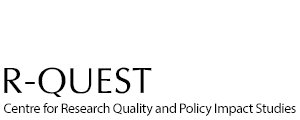Country level studies
Changing governance regimes (from academic oligarchy to New Public Management) in conjunction with changing regulatory framework conditions and funding rationales (from block- to competitive funding) are influencing the institutional and organizational conditions of research organizations (Braun 2014; Ferlie et al 2008). This has however developed differently in different countries, generating different climates and conditions for research (Paradeise et al 2009; Borlaug 2015). Studies addressing these issues have so far primarily focused on explaining differences on the i) macro-level, e.g. issues pertaining to the national innovation systems, and ii) differences on
the micro-level, while few have combined the micro, meso and macro-level (Aagaard and Schneider 2015). In this research strand, we will link these three levels and enhance our understanding of the individual, local, organizational, institutional and national factors contributing to high research performance.
In recent years we have witnessed an increasing interest in how nations ‘compete’ on various output and impact measures of academic research (e.g. May 1998; Adams 1998; King 2004), and much interest has been devoted to identifying policy factors facilitating or hindering high national research performance (e.g. Auranen and Nieminen 2010; Öquist and Benner 2012; Aagaard and Schneider 2015). Meaningful quantitative cross-country comparisons have however been challenged by a number of limitations of the OECD Main Science and Technology Indicators databases, where breaks in the series, lack of unification across countries, differences in data collection methods and lack of detail in the data concerning funding agencies, instruments and scientific disciplines stand out as central shortcomings (Irvine et al 1990; Lepori 2006; Godin 2005; Crespi and Geuna 2008). It has thus been difficult to attribute observed differences in terms of research performance to specific policy differences without in-depth, case-study based understanding of the complex, and constantly shifting policy landscapes of the included countries
(Franzoni et al. 2011; Wang & Hicks 2013).
These challenges can however be addressed within the R-Quest framework where the detailed national funding statistics (without the limitations of the available OECD data) allow for more sophisticated quantitative analyses, and where R-Quest will possess the necessary in-depth knowledge to interpret the quantitative data in the appropriate historical contexts. On both the input-side (funding) and the outcome-side (publications and citations) detailed time-series from 1980 to the present can be constructed. By combining these detailed quantitative data with comprehensive qualitative document-, survey- and interview-based material it will be possible to
conduct long term, cross country comparative analyses at the national level for the countries involved in the R-Quest consortium. The data will furthermore allow us to perform dis-aggregated analyses at fields- and institutional levels in order to get a more detailed understanding of the underlying composition of the aggregated performance measures within the selected countries. On the one hand, this part of the research activities of the R-Quest centre will examine if we
can identify relationships between changes in research policy (including changes in funding mechanisms, funding volume, governance mechanisms, training- and recruitment mechanisms etc.) and changes in research performance measured on various publication and citation indicators when a thorough and systematic, long time perspective is applied to the analysis. The analyses will accordingly both apply synchronic and diachronic perspectives. The analysis will however also remain
open to other potential explanations of high research performance such as underlying differences in scientific cultures or other factors not directly related to policy configurations (see strand 2b). On the other hand, this strand will also challenge the view that high performing countries
solely are outperforming other countries due to superior ‘quality’ of the heir research (in doing so, this part will link directly to strand number 1). Here we will examine how other factors may influence national research performance. The main question will be to what extent differences in performance between countries can be attributed to differences in ‘research quality’ and to what extent differences can be attributed to other factors such as languages, cultural orientation, access to
networks and gatekeeper positions, internationalisation and changes in the bibliometric databases over time (e.g. Altbach 2012; García-Carpintero et al 2010; Inönü 2003; van Leeuwen et al. 2001).

